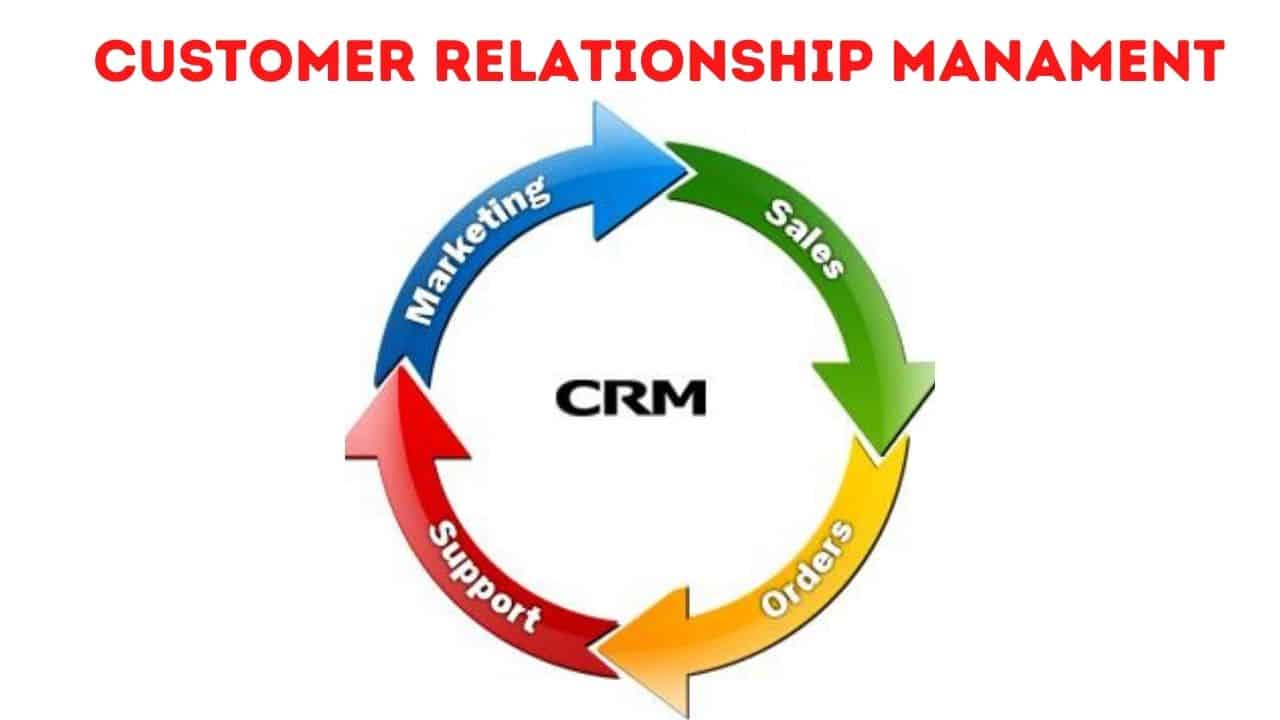A successful business begins with the formation of a legal entity. Small business entrepreneurs must pick what form of legal entity they want their company to be. The legal entity you choose has consequences for everything from the taxes you must pay to the amount you can be held liable for your company’s actions. Here’s all you need to know about small business laws.
What Are Small Business Laws?
Small business laws can encompass a broad range of topics and regulations. When you start a small business, you must be aware of all of your legal obligations, from employment law and tax requirements to establishing the proper business entity.
The Most Important Small Business Laws and Procedures
Small business owners must be aware of various aspects of the law.
#1. Employment Law
If you hire anyone to work for you in your small business, you must be familiar with employment laws. These laws differ by state, so it’s a good idea to contact an employment lawyer to make sure you’re following all of the rules.
When hiring staff, you must comply with the following laws and regulations:
- Anti-discrimination legislation
- OSHA guidelines
- Payroll regulations
- Tax withholding regulations
- Unemployment benefits
- Workers’ compensation
If you violate employment rules and regulations, you may face legal action.
#2. Tax Law
In addition to withholding employee taxes, you will need to know how to obey tax rules and regulations for small businesses. As a small business owner, you must file your taxes with the IRS correctly. It’s also critical to understand any queries you have concerning sales and VAT taxes, as well as when you need to file company income tax returns.
#3. Trademark Law
One of the first duties to take on when you’re beginning a business is coming up with your company’s name. Though you’ll probably want to start using the name you choose straight immediately, this can cause complications. If you inadvertently choose a name, motto, or logo that’s similar to another company, they can send you a cease and desist letter (or even a lawsuit) if they have already registered that information. You also want to ensure that your personal information is secure.
To avoid difficulties with trademark law, take the following steps:
- Visit your state’s secretary of state’s website and search for registered corporations to see if the name you want is available.
- If your name is available, file a “Doing Business As” form, or DBA, in your state or county.
#4. Policies and safeguards for customers
You must have a legally enforceable terms and conditions policy to which your customers must agree. This is especially critical if you are offering a service. The agreement should include details about how to use your services or products, as well as any customer obligations.
Likewise, you will need to have a clear privacy policy that specifies the customer information you do and don’t share. Laws such as the GDPR in Europe and CCPA in California most certainly apply to your business, no matter where you are situated, if you contact with consumers in those countries.
#5. Licensing, Permit, and Recertification Procedures
You must become acquainted with all licensing and permit requirements for your business’s specific field. Depending on your industry, you may require the following licenses and permits:
- Licenses for general business operations
- Permission from the Health Department
- Certificates of health and safety
- Permits for Land Use
- Occupational licenses
- Permits to sell regulated goods (such as alcohol, tobacco, or tires)
- Licenses for sales tax
- State certificates with third-party boards (such as nursing or plumbing)
- Zoning
Most towns and states post numerous required licenses and permits online. You need to keep your business in compliance so that federal, state, or municipal authorities don’t shut down your business. The documentation your firm needs to stay legally compliant differ dependent on industry and location. Renewal requirements for these documents vary, so check with your local business licensing offices to stay current.
Small enterprises may register with the following government authorities and departments:
- TTB (Tax and Trade Bureau) for Alcohol and Tobacco
- Bureau of Alcohol, Tobacco, Firearms and Explosives (ATF)
- The FAA is the Federal Aviation Administration.
- Federal Communications Commission
- National Oceanic and Atmospheric Administration
- USDA (United States Department of Agriculture)
- U.S. Fish and Wildlife Service
#6. Requirements for State and Federal Filing
To be legally compliant, small enterprises must also comply with state and federal filing obligations. Many of these are ongoing operations.
State Regulations
Although annual filing requirements vary depending on the type of business and the state in which it operates, the following are common requirements:
- Initial reports: Some states require businesses to file an initial report and pay a fee shortly after incorporation.
- Franchise tax: Some states levy franchise taxes on LLCs or corporations that operate in those states.
- Most states will demand one of these documents, either annual reports or biennial statements.
- Statement filing fees: You typically need to pay a fee along with the annual report or biennial statement.
- Articles of amendment: You must use this document to indicate any significant company changes, such as modifications to: Name, address, membership, new shares
Federal Regulations
Many businesses will not be required to meet federal requirements as long as they pay federal taxes and comply with the Affordable Care Act, which requires employers with 50 or more employees to report providing health coverage to the IRS. You must, however, meet all federal tax obligations, including employer and income taxes. In addition, you must keep your federal certifications, licenses, and permits up to date.
Furthermore, some federal requirements do not necessitate ongoing filing. Small businesses must comply with the following regulations:
- Laws implementing the Americans with Disabilities Act
- Copyright legislation
- Laws governing marketing and advertising
- Workplace health and safety regulations
- Workplace poster regulations
Small Business Laws in Virginia
Even if you own a corporation or a limited liability company, you must ensure that your small business follows Virginia’s business laws. You owe it to the survival of your company and the well-being of your employees in the workplace.
Understanding state and federal laws, as well as knowing how to proceed when a legal issue arises, is critical for Chesapeake, Virginia Beach, and Richmond business owners. Here is Virginia small business law information ranging from intellectual property protection to responding to malpractice claims.
Business Plans in Virginia
Your small business idea may appear to be the next big thing in its field, but how confident will you and your potential investors be when it finally hits the market? By developing a business plan, you may ensure that you’ve addressed the majority of your concerns about the starting process and the long-term viability of your company.
A business plan can help you think critically about what it will take to start your small business and how it will compete. It should serve as a road plan for your company as well as a proof of concept for investors and other sources of funding. You will need to do research on the market, your potential customers and your competitors and create financial projections that account for the various startup and maintenance costs.
The more effort you put into your business plan, the better prepared you’ll be to meet your objectives and overcome challenges.
First Steps to Starting a Small Business in Virginia
You have a product or service on which to build a small business. How do you get your company off to a good start? There is no one proper approach to starting a new business. However, there are a few crucial actions you should take first:
- Prepare a business plan.
- Choose a legal structure for your business.
- Select and register a business name.
- Find a property that meets your company’s demands and learn about the necessary safety and zoning codes.
- Seek financing if you’re unable to self-finance your business.
- Register for federal, state and local taxes, licenses and permits.
- Use trademarks, service marks, copyrights, or patents to protect your innovative and original business items, services, or ideas as intellectual property.
For new small enterprises, the Virginia state government provides important information regarding local and state resources. The U.S. Small Business Association also maintains a reference guide for small enterprises in Virginia.
Intellectual Property Protection in Virginia
If your business produces a unique, original, or new type of product, service, or invention, you’ll want to protect the use and distribution rights of your intellectual property from competitors. The United States Patent and Trademark Office provides business owners with options for registering and protecting intellectual property in the United States market.
You can register for three forms of intellectual property protection. Each one protects a different type of product, service, or idea:
- Copyright safeguards published and unpublished creative works such as film, music, books, magazines, art, and so on.
- Trademark/Servicemark—These safeguard the identifiers used to sell goods (trademarks) or services (servicemarks), such as symbols, names, words (e.g. catchphrases or mottos), or other means.
- Patent—This protects new and original inventions, including newly bred varieties of plants, improvements to existing processes and patterns or designs to clothing and apparel.
California Small Business Laws
Here’s all you need to know about California tax laws:
#1. California Tax Laws
The California Competes Tax Credit (CCTR): This credit, which is an extension of the California Business Tax Code, allows California businesses to recoup some of their capital expenditures if certain projected milestones are met. Small firms with gross receipts of less than $2 million are not subject to a GO-Biz evaluation under the arrangement implemented beginning with the 2014 tax year. The CCTR will be in effect until January 20, 2025.
The California Homemade Food Act of 2012, also known as AB-1616, allows home-based pastry, baker, and chef businesses to operate without the need for commercial kitchen space. Such businesses are no longer subject to tough zoning laws and other regulatory rules. Businesses may still be required to get standard business licenses and permissions.
#2. Employee Remuneration Laws
In 2018, AB 908 on Paid Family Leave (PFL) law went into effect, increasing paid family leave benefits from 55 percent to up to 70 percent of earnings. The law establishes a weekly benefit cap based on the amount received. The law eliminates the seven-day waiting period for employees to receive PFL benefits.
Minimum wage laws: Beginning on January 1, 2017, California enacted a new law governing employee minimum wages. Businesses that employ 26 or more people are required to pay a minimum wage of $10.50 per hour. Businesses must raise their hourly wages to $15 by 2022. Smaller enterprises with fewer than 26 employees can continue the $10-per-hour rate but are still expected to pay $15 per hour by 2023. Local regulations may take precedence over this act, and you may need to check with a local company lawyer to know the minimum wage in your area.
The Fair Pay Act, which became law in 2016, prevents employers from underpaying employees based on their race, gender, or past earnings.
#3. California Employee Notification Statutes
A 2017 law requires all California businesses to notify their employees if they are qualified for the federal earned income tax credit (EITC) and the California EITC, which must be done around the time the employer provides the employee with Form W-2 or Form 1099.
AB 2337 demands all companies with 25 or more employees must offer all employees a written notice describing the rights of victims of domestic violence, sexual assault, and stalking. Employers must also inform their employees of their right to take time off for medical treatment or legal proceedings, according to the law.
#4. Immigration Protections and Employee Background Check Laws
Employers in California are prohibited by law from conducting criminal background checks on potential workers. A new law increases these limits by barring employers from asking about a job candidate’s juvenile criminal past and utilizing such information in deciding conditions for employment. Other laws in Los Angeles, San Francisco, and other jurisdictions tighten the restrictions.
Assembly Bill 1008 builds on the 2013 “ban-the-box” effort, which prohibited firms with five or more employees from enquiring about employees’ criminal histories and using such information when making an offer. The Bill empowers a job candidate to dispute an employer who revokes a job offer based on the individual’s criminal background.
The United States Citizenship and Immigration Services revised Form I-9, and all employers must use the new version. A new state law strengthens immigrant safeguards and supports federal requirements that employers request further documentation in addition to the Form I-9.
Other new laws that may affect a small business in California include:
- The All-Gender Restrooms and Signage Requirement Laws mandate that all single-user restrooms be labeled “all gender.”
- SB 269 was enacted to close loopholes in the Unruh Civil Rights Act that allowed entities to extort huge sums of money from California corporations. The statute allows a small firm to avoid liability by engaging a Certified Access Specialist (CASp) and obtaining a 120-day grace period to correct minor infractions. The rule also offers a grace period of 15 days before a penalty can be levied on small enterprises as a result of minor signage and surface display infractions.
Small Business Laws in Texas
Texas has been lauded as one of the best states for small businesses and startups due to its low business taxes, lack of income taxes, and overall friendlier state economy. That being said, you shouldn’t rush to Texas and set up shop. There are other legal concerns to take into mind, such as the type of firm you should establish and Texas’ employment rules.
Understanding state and federal laws, as well as knowing how to proceed when a legal issue arises, is critical for business owners in San Antonio, Houston, and Austin. From starting a business to protecting intellectual property, here’s all you need to know about small business laws in Texas:
Texas Business Organizations
In Texas, you can use a variety of legal business structures, each with its own set of advantages and disadvantages. As a business owner, the structure you choose affects your tax obligations and personal liabilities. Business structures are classified into four types:
Sole Proprietorship—The most fundamental business structure, owned and operated by a single person (often an independent contractor). A sole proprietorship does not require a formal organization, but you must still apply for business permits and licenses.
Partnership—A company owned by two or more people, each of whom owns an equal or proportionate share of the company. Partnerships are classified into three groups based on how ownership is divided:
General Partnership—Business owners share equal ownership.
The degree of ownership is proportional to each owner’s personal investment in the business.
Limited Liability Partnership (LLP)—Similar to a limited partnership but with some tax benefits and responsibility and debt shielding for limited partners.
Corporation—A legal person that has limited liability and protects its owners (called “shareholders”) from liability (also known as the “corporate veil”). Separate personnel known as “directors” run the corporation in the best interests of the shareholders.
Limited Liability Company (LLC)—A hybrid business structure that combines the advantages of a partnership and a corporation. All business owners (referred to as “members”) pay the LLC’s taxes on their personal tax returns and have limited responsibility in relation to their investment.
Texas Corporate Taxes
Most Texas firms will be subject to state business taxes, some of which are particular to the items or services your company provides. An owner’s business tax liability is reliant upon their business’s structure. A shareholder of a corporation, for example, does not have the same level of business tax liability as a general partner.
The franchise tax is Texas’s major corporate tax. Except for sole proprietorships and certain partnerships, most businesses are subject to the franchise tax. The privilege of doing business in Texas is taxed. In Texas, the tax rate is less than one percent, however it varies depending on the type of business. Sales, property, and insurance taxes are examples of other business taxes.
Do You Need A Business License in NY?
To operate a business in New York, all businesses operating under a business name must register as a legal entity.
How Can I Legally Protect My Small Business?
- Make a financial strategy.
- Engage the services of an attorney.
- Purchase Small Business Insurance.
- Safeguard Your Company’s Data.
- Maintain and safeguard your reputation.
- Separate Yourself From Your Business.
- Keep your employees safe.
- Protect Your Property.
Do I Need To File As A Small Business?
Except for partnerships, all firms must file an annual income tax return.
How Many Businesses Get Sued Each Year?
Every year, 12 million lawsuits are filed against small enterprises
In Conclusion,
A small business owner should get legal counsel since legal issues can be disastrous if handled incorrectly or ignored. Complex and time-consuming issues include defending against wrongful termination claims and negotiating the acquisition of another company’s assets. Using an attorney to help avert legal troubles is a good decision.
Related Articles
- DO I NEED A BUSINESS LICENSE? :The Need to Get a Business License
- HOW MUCH IS A BUSINESS LICENSE: What You Need To Know and Free Tips
- SOFTWARE LICENSE MANAGEMENT TOOLS: Meaning and Best Tools To Use
- SOFTWARE LICENSE: Definition, Agreement and Costs






